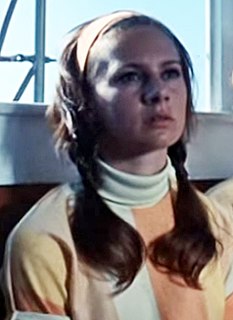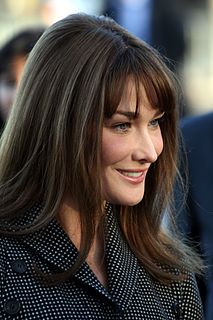A Quote by Jeanette Winterson
I have a theory that every time you make an important choice, the part of you left behind continues the other life you could have had.
Related Quotes
He wanted to care, and he could not care. For he had gone away and he could never go back anymore. The gates were closed, the sun was down, and there was no beauty left but the gray beauty of steel that withstands all time. Even the grief he could have borne was left behind in the country of youth, of illusion, of the richness of life, where his winter dreams had flourished.
Now I'm not going to go, "Oh my God, what are people saying about me?" I had a choice to be a student and not become a model, and becoming a doctor was another one of my dreams. I had a choice between not becoming a singer or becoming a songwriter and writing behind the scenes; nobody would have seen me writing songs for other people. I had the choice of not marrying my man; we could have just been hidden lovers, but I couldn't cope with it. I had these choices to do all these things, so I'm not going to cry over a life which has been really lucky.
Feminism as a movement for political and social equity is important, but feminism as an academic clique committed to eccentric doctrines about human nature is not. Eliminating discrimination against women is important, but believing that women and men are born with indistinguishable minds is not. Freedom of choice is important, but ensuring that women make up exactly 50 percent of all professions is not. And eliminating sexual assaults is important, but advancing the theory that rapists are doing their part in a vast male conspiracy is not.
And, partly, I had found that theory-structure was a superpower in helping one get what one wanted. As I had early discovered in school wherein I had excelled without labor, guided by theory, while many others, without mastery of theory failed despite monstrous effort. Better theory I thought had always worked for me and, if now available could make me acquire capital and independence faster and better assist everything I loved.
I had lines inside me, a string of guiding lights. I had language. Fiction and poetry are doses, medicines. What they heal is the rupture reality makes on the imagination. I had been damaged, and a very important part of me had been destroyed - that was my reality, the facts of my life. But on the other side of the facts was who I could be, how I could feel. And as long as I had words for that, images for that, stories for that, then I wasn't lost.
Why don't you trust women to make this choice for themselves? We can encourage people to support life. Of course we can. But why don't you trust women? Why doesn't Donald Trump trust women to make this choice for themselves? That's what we ought to be doing in public life. Living our lives of faith or motivation with enthusiasm and excitement, convincing other, dialoguing with each other about important moral issues of the day but on fundamental issues of morality, we should let women make their own decisions.
Every time you make a choice you are turning the central part of you, the part of you that chooses, into something a little different from what it was before. And taking your life as a whole, with all your innumerable choices, all your life long you are slowly turning this central thing either into a heavenly creature or into a hellish creature...
I think some people had, probably, a time in their life where they were good at two things and they had to make a big decision. For me, it was never like that - I just skied every day of my life and kind of made the right steps in the right direction, and so there wasn't really a choice of like, "What should I do?" I remember when I was like 10 years old, I was just wanting to be in the Olympics and wanting to compete in the World Cup, and there was never another choice in my head.




































